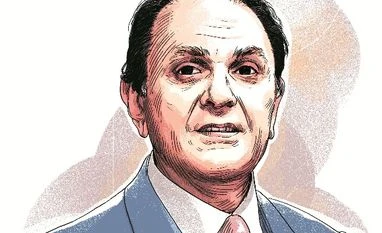Nusli Wadia, 72, is well-known for keeping a low profile and seldom talks to the media. But when it comes to boardroom battles, Wadia’s aggressive style is feared and respected by his supporters and rivals alike.
On Thursday, in Tata Chemicals’ board meeting, Wadia, taking a cue from the independent directors of Indian Hotels, decided to back Cyrus Mistry who was ousted as Tata Sons chairman in a dramatic turn of events on October 24. Wadia’s old friend, Ratan Tata, 78, took over as the interim chairman of Tata Sons, the holding company of the Tata group.
Apart from Tata Chemicals, Wadia is on the board of Tata Steel and Tata Motors and would play an important role in deciding the future course of the Tata group that is witnessing an ugly spat between the group patriarch, Tata, and Mistry. As the chairman of the nomination and remuneration committee of Tata Chemicals, Tata Steel and Tata Motors, Wadia had signed a positive report on Mistry and is unlikely to support Tata. He is backing Mistry to the hilt, said a Tata Chemicals board member.
Wadia, who owns India’s largest food company, Britannia Industries, Go Airlines and realty firm Bombay Dyeing and runs the group with the help of his two sons, Jeh and Ness, declined to comment.
The Tata battle is not the first corporate battle Wadia has entered. Wadia wrested Britannia after a prolonged fight with Danone for the control of the company. Danone finally exited the company in 2009 and sold its stake to Wadia after13 years of partnership.
Since Wadia’s takeover of Britannia, the company’s shares have more than doubled from Rs 1,500 a share to Rs 3,200 as of today.
The war over Britannia started in 2006, when Wadia sued Danone in Mumbai alleging the French firm’s stake in Bangalore-based biotech firm Avesthagen had violated a no-compete clause in their joint venture agreement. Both companies also fought over the intellectual property rights of the Tiger brand with Britannia taking Danone to court in Singapore in 2007. The Indian biscuit maker had alleged that Danone had registered the Tiger brand as its own in nearly 40 countries without giving it any intellectual property right fees. Wadia won the war with Danone and Danone decided to set up its own direct subsidiary in India to sell dairy products.
But the fight for which Wadia is known for is the one with Dhirubhai Ambani, the founder of Reliance Industries, which started its business in textiles — a domain of Bombay Dyeing. During the late eighties, Wadia joined hands with Indian Express founder Ramnath Goenka to attack Ambani in a series of explosive articles on evasion of tax. But Ambani, who had built a clout in the bureaucracy and among politicians, made sure that a petrochemicals plant planned by Wadia got delayed for a long time. Reliance, meanwhile, went on to become India’s biggest private sector company.
More From This Section
In a rare interview to this paper in 2012, Wadia said: “To some extent, yes (I did miss the bus), but that’s because I chose not to manipulate the system. God has given me more than I deserve. I want to sleep peacefully at night. I don’t want a private jet and I don’t have the driving ambition to be the richest man. I want to live by a set of values that is integral to anything that we do.”
Wadia said all the policies related to polyester, and the polyester chain, during the eighties were manipulated. “You had to manage the system for all licences. If you remember, when I imported my plant, it was lying in the docks and my import licence was not given to me. The entire duty structure those days was manipulated. I was not able to do what my competitor did, but I was not willing to change my values for anything,” said he.
Interestingly, Wadia is still deposing as a witness in a 27-year-old case in which Kirti Ambani, a former general manager of RIL, is accused along with others of conspiring to murder him in 1988-89.
Wadia, who is on the board of Tata Steel since the last four decades, was considered a worthy candidate to take over as Tata group Chairman after JRD Tata in the 1990s. But Wadia refused and advised JRD to make Ratan Tata the next chairman. Since then Wadia remained a close confidant of Tata and helped him to unseat Tata satraps in the first five years of Tata’s tenure.
But in the current battle between Mistry and Tata, Wadia, according to insiders, has decided to support 48-year-old Mistry as he had managed to turn around the group and was made the fall guy for the bad acquisitions made by Tata in his last five years of chairmanship. With the corporate samurai now turned against them, Tata has some reason to be worried.
)